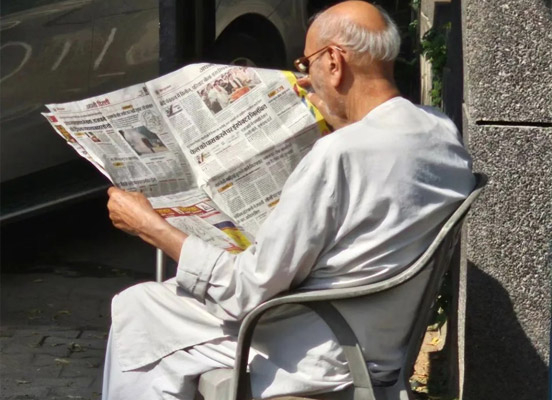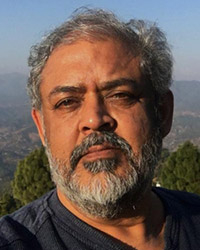
By Himanshu Rath
The global population is aging at an unprecedented rate. According to the United Nations, the number of people aged 60 years or over is expected to more than double by 2050, reaching nearly 2.1 billion. This demographic shift presents both significant challenges and opportunities. Ensuring a society that is friendly to seniors is not just a matter of compassion; it is a necessity to maintain social stability, economic growth, and the dignity of human life.
This article explores the global demographic trends of aging, the specific challenges faced by older people, particularly in developing countries like India, and the urgent need for a United Nations Convention on Aging to safeguard the rights and dignity of older people.
Global demographic trends of aging
The aging population is a global phenomenon. In 2020, there were approximately 727 million people aged 65 and older. By 2050, this number is projected to reach over 1.5 billion. This demographic shift is most pronounced in developed countries, but developing countries are also experiencing rapid increases in their elderly populations. For example, by 2040, China and India will collectively account for over one-third of the world’s population aged 60 and above.
In developed world, the aging population has been gradually increasing over decades. In contrast, developing countries are experiencing a more rapid transition due to improvements in healthcare, declining fertility rates, and increased life expectancy. In India, the proportion of people aged 60 and above is expected to rise from eight per cent in 2015 to 19 per cent by 2050. Similarly, China's elderly population is anticipated to constitute about 28 per cent of its total population by 2040.
Challenges faced by older people
The growing number of older people presents various challenges that require comprehensive and strategic responses. These challenges are particularly acute in developing countries, where social security systems, healthcare infrastructure, and support services are often inadequate. Older people are more likely to suffer from chronic conditions such as heart disease, diabetes, and arthritis.
In developing countries, healthcare systems are often ill-equipped to manage these chronic diseases effectively. The lack of geriatric care specialists, inadequate healthcare facilities, and high out-of-pocket expenses make it difficult for older people to receive the care they need.
Financial insecurity is a significant issue for older people globally, but it is more pronounced in developing countries. Many older people in these regions do not have access to pensions or social security benefits. In India, for example, only a small fraction of the elderly population receives a formal pension, leaving many dependent on family support, which can be unreliable or insufficient.
Social isolation and loneliness are major issues among older people. As traditional family structures evolve and urbanization increases, many older people find themselves living alone. This isolation can lead to mental health issues such as depression and anxiety, further exacerbating their vulnerability. Support services, such as assisted living, home care, and community centers, are often scarce in developing countries. Even when these services are available, they may be unaffordable for many elderly individuals. The absence of such support systems makes it difficult for older people to live independently and with dignity.
The case for UN Convention on Aging
Given the growing challenges faced by the elderly population, there is a compelling need for a comprehensive international framework to protect their rights and ensure their well-being. A United Nations Convention on Aging would serve as a critical tool in addressing these challenges. It would explicitly recognize and protect the human rights of older people and establish international standards for the treatment of older people and ensure that their rights are respected and upheld in all member states.
This includes the right to adequate healthcare, social security, and protection from abuse and discrimination. Ensuring dignity and respect for older people is a fundamental aspect of creating a seniors-friendly society. A UN Convention would emphasize the importance of treating older people with the respect they deserve, recognizing their contributions to society, and ensuring that they can live their later years with dignity.
A UN Convention would provide a strong policy and legal framework to guide national governments in developing and implementing policies that support the elderly population. It would encourage countries to adopt comprehensive strategies that address the healthcare, financial, and social needs of older people. Moreover, it would promote the development of age-friendly infrastructure and services.
A global convention would foster international cooperation and knowledge sharing. Countries can learn from each other’s experiences and best practices in creating age-friendly societies.
This collaboration can lead to innovative solutions and improvements in the quality of life for older people worldwide.
The demographic shift towards an aging population is one of the most important social transformations of the 21st century. Ensuring a society that is friendly to seniors is not only a moral imperative but also a practical necessity. Older people have the right to live with dignity, respect, and security. The challenges faced by the elderly, particularly in developing countries like India and other South Asian countries, highlight the urgent need for a comprehensive international framework.
A UN Convention on Aging would be a significant step towards addressing these challenges. It would establish international standards for the treatment of older people, protect their human rights, and ensure that they can live their later years with dignity and respect. As the global population continues to age, we must act now to create a seniors-friendly society that values and supports its older members.

Himanshu Rath is the founder of Agewell Foundation, a not-for-profit organization working for the welfare and empowerment of the elderly in India. (Photo: Agewell Foundation)